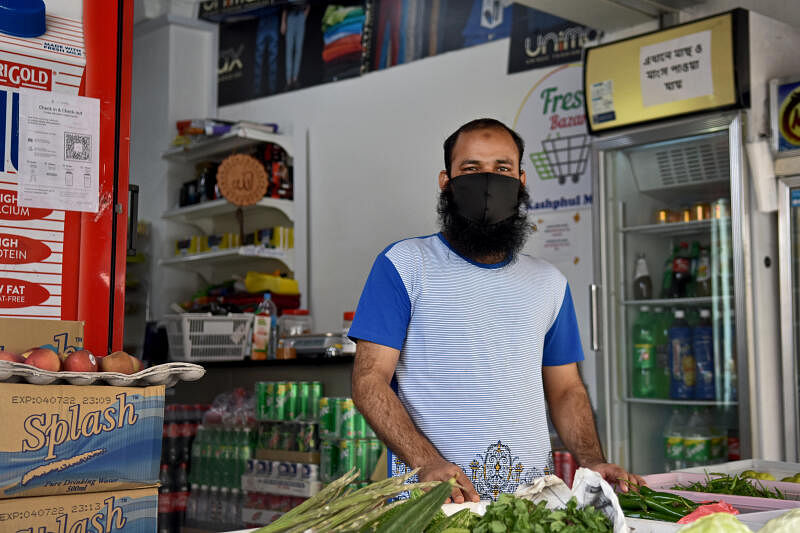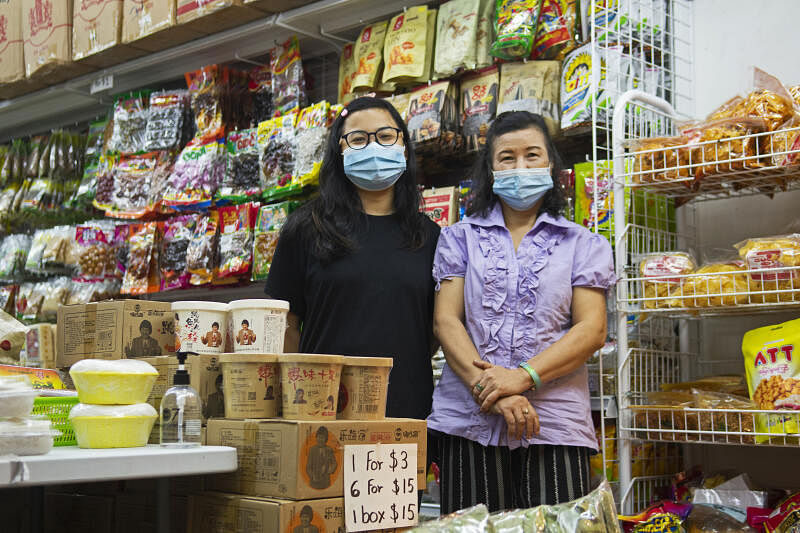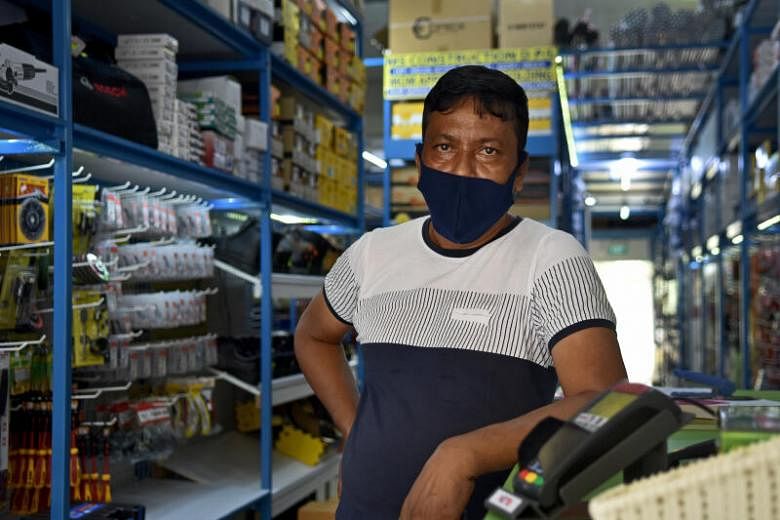SINGAPORE - Behind shelves of hardware equipment and construction tools hide posters that contain pictures of the Statue of Liberty, the Sydney Opera House and the Singapore Zoo.
In May, Mr Mohammed Shahadat Hossain, 48, turned his former travel agency and photo studio on Desker Road into a hardware store, after Covid-19 crippled the travel industry, hitting his customer base of mainly migrant workers.
About 323,000 migrant workers living in the dormitories were locked down to curb the spread of Covid-19.
This meant businesses like Mr Hossain's saw their revenues evaporate overnight and were forced to rethink strategies.
Mr Hossain's hardware store has since pivoted to target locals, and business has picked up. "I can't say it's very good now, but I try my best to get by," he said.
But some shops, including restaurants and tailor shops, could not hang on and have closed.
During the circuit breaker, Singapore's Retail Sales Index, which measures short-term performance of the retail trade, fell as much as 52 per cent year on year in May.
"A lot more shops are being put up for rent," said Ms Emily Lim, a property agent at OrangeTee & Tie, who manages shop rentals in Little India.
She expects more businesses to close their shopfronts in the coming months and shift online to save on rent.

Little India Shopkeepers and Heritage Association (Lisha) secretariat Kumaran Pillai said: "I think some shops will close down, especially those for tourists, and grocery shops targeting migrant workers."
The association, which promotes the area and represents its merchants, said rather than reach out to migrant workers, it will now focus on local customers.
It is publicising events such as the street light-up that has started for Deepavali next month. Lisha is counting on the Hindu festival of lights, and promotions it is running with the occasion, to draw crowds and revive business fortunes.
"Our main concern until next March is to attract locals back to shop," said Mr Kumaran. "As for the migrant workers, we need to wait for the Ministry of Manpower's ruling."
For surviving shops, many are holding out until the end of this year by changing the products they stock to target locals instead.

On Desker Road in Little India, shopkeeper Chanchal Hasan, 35, switched from selling clothes to groceries in July. He now earns enough to cover the store's rent.
And in Peninsula Plaza, Ms Iris Htet Engine Thant, 21, and her family are delivering their minimart's products to Myanmarese families living in Singapore, by gathering orders through Facebook.
Many stay hopeful that business will recover by 2021, as the Government progressively allows greater movement of migrant workers here provided cases in dormitories remain low.
MOM said it has allowed selected workers to run personal errands outside their dorms on their days off from August.
The trial will gradually be extended to all workers.

